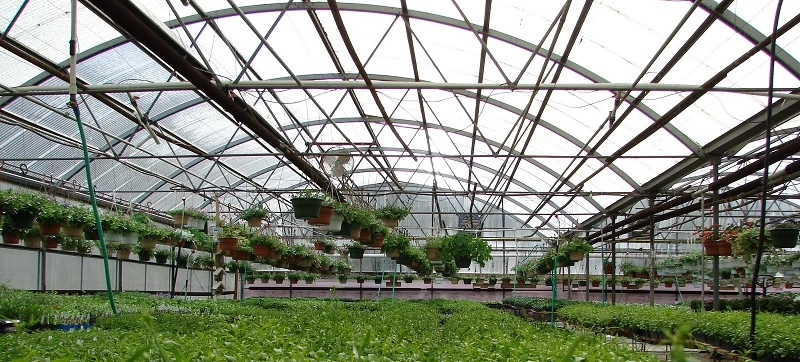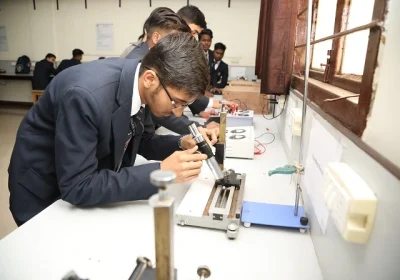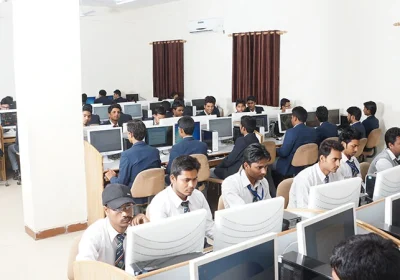
Is BSc agriculture a good career?
A Bachelor of Science in Agriculture can be a good career choice for individuals interested in the production and management of crops and livestock. It can lead to a variety of career options such as a farmer, agricultural researcher, agricultural consultant, and more.
However, it’s important to note that the job outlook and earning potential can vary depending on the specific field and location. Additionally, it’s important to consider if the field aligns with your interests and passions.
In addition to the career options mentioned above, a BSc in Agriculture can also lead to roles in agribusiness, agricultural extension and education, food science and technology, and environmental management. Graduates may also find opportunities in government agencies, non-profit organizations, and international development organizations.
Additionally, the field of agriculture is constantly evolving, with advancements in technology and research leading to new opportunities and career paths. As the world population continues to grow, the demand for food production is also increasing, making a career in agriculture a potentially stable and rewarding choice.
However, it is also important to consider the fact that the field of agriculture can be physically demanding and may require working long and irregular hours, especially on a farm. It is also subject to weather and market fluctuations, which can affect the job security.
Overall, a BSc in Agriculture can be a good career choice for individuals with a passion for the field and willing to work hard. It is essential to research and understand the specific career path you want to pursue in the field of agriculture and the job market in your area.
What is the scope for BSc agriculture?
The scope for BSc in Agriculture is broad and varied, with opportunities in both the private and public sectors. Some of the key areas of employment include:
- Farm Management: Graduates can work as farmers, managing their own farms or working as managers on large commercial farms.
- Agribusiness: Graduates can work in the business side of the agricultural industry, such as marketing, sales, and supply chain management.
- Agricultural Research: Graduates can work in research institutions, universities, or government agencies to conduct research on crop and livestock production, plant breeding, and soil and water management.
- Agricultural Extension: Graduates can work as agricultural extension officers, providing technical assistance and education to farmers and rural communities.
- Food Science and Technology: Graduates can work in food processing and packaging industries, developing new food products and improving existing ones.
- Environmental Management: Graduates can work in government agencies, non-profit organizations, and the private sector to develop and implement sustainable agricultural practices.
- International Development: Graduates can work for international development organizations, working on projects to improve agricultural production and food security in developing countries.
In addition, there are many other opportunities in the field of agriculture such as working as an agricultural consultant, in agricultural education, or in seed production, biotechnology, and more. With the increasing world population, the scope for BSc in Agriculture is expanding.
It is important to note that the opportunities and job market can vary depending on the specific field of study and location. It’s always a good idea to research the job market and the specific career path you want to pursue before making any decision.
What is the salary for BSc agriculture per month in India?
The salary for a BSc in Agriculture in India can vary depending on factors such as location, experience, and the specific job or employer. However, on average, the following salaries can be expected:
- Entry-level positions: Fresh graduates with a BSc in Agriculture can expect to earn between 15,000 to 20,000 rupees per month.
- Junior and mid-level positions: With some experience, graduates can expect to earn between 20,000 to 30,000 rupees per month.
- Senior and executive-level positions: With several years of experience, graduates can expect to earn between 30,000 to 50,000 rupees per month.
It is important to note that these figures are approximate and may vary depending on the specific job, employer, and location. Additionally, the salary range can also vary depending on the specific field of study or specialization within agriculture.
It is also important to note that many of the jobs in the field of agriculture in India are not salaried, but based on the performance of the farm, so the earning potential can be substantial.
It is always a good idea to research the salary and job market in your specific location and field before making any career decisions.
What are subjects in BSc agriculture?
The subjects studied in a BSc in Agriculture program can vary depending on the specific institution and curriculum, but some common subjects that are typically included are:
- Soil Science: This subject covers the physical, chemical, and biological properties of soils and their management.
- Crop Science: This subject covers the principles of crop growth and development, breeding, and management.
- Horticulture: This subject covers the principles of fruit, vegetable, and ornamental crop production and management.
- Animal Science: This subject covers the principles of animal breeding, nutrition, and management.
- Agricultural Economics: This subject covers the economic principles of agriculture, including markets, pricing, and agricultural policy.
- Agricultural Engineering: This subject covers the application of engineering principles to agriculture, such as irrigation, drainage, and farm machinery.
- Agronomy: This subject covers the study of plants and their growth and development, including crop rotation and tillage.
- Entomology: This subject covers the study of insects and their relationship to agriculture.
- Plant Pathology: This subject covers the study of plant diseases and their management.
- Biotechnology: This subject covers the application of biotechnology to agriculture, such as genetic engineering and tissue culture.
- Extension Education: This subject covers the principles of adult education and communication, and their application to extension work.
- Environmental Science: This subject covers the study of the environment and its impact on agriculture.
These are some of the common subjects that you can expect to study in a BSc in Agriculture program. However, depending on the specific institution and curriculum, the subjects may vary.
Frequently Asked Questions
Q1. Does BSc agriculture need NEET?
Ans. In India, to pursue B.Sc (Agriculture) and B.Sc (Horticulture) programs, students are required to qualify for the All India Entrance Examination for Undergraduate (AIEEA-UG), conducted by the Indian Council of Agricultural Research (ICAR) or for the state-level entrance exams for agriculture courses such as PAU-CET, MP-PAT, etc.
The eligibility criteria for these exams include a minimum of 50% marks in 10+2 or equivalent examination with Physics, Chemistry, and Biology or mathematics as the main subjects. However, it is not required to qualify for the National Eligibility cum Entrance Test (NEET) which is for the medical field.
It’s important to note that the admission process and eligibility criteria can vary depending on the specific institution and program, so it’s always a good idea to check with the institution directly for the most up-to-date and accurate information.
Q2. Does BSc agriculture need maths?
Ans. Whether or not a BSc in Agriculture program requires mathematics as a subject can vary depending on the specific institution and curriculum. However, in most cases, mathematics is not a mandatory subject for BSc in Agriculture in India. However, having mathematics as a subject in 10+2 or equivalent examination is a requirement to be eligible to appear in the entrance exams for the BSc in Agriculture programs.
That being said, many institutions may offer courses in agricultural statistics, or courses that have a mathematical component, so a basic understanding of mathematical concepts and calculations can be useful for students in the field of agriculture. Additionally, having knowledge of mathematical concepts such as algebra, geometry, and calculus can be beneficial for students who wish to pursue higher studies or research in agriculture.
It’s important to check with the specific institution and program for the most up-to-date and accurate information on the subject requirements.
Q3. Can a girl study BSc agriculture?
Ans. Yes, girls can definitely study BSc in Agriculture. The field of agriculture is open to individuals of all genders and backgrounds. In fact, the number of female students pursuing agriculture-related degrees has been increasing in recent years. Women have the opportunity to make valuable contributions in the field of agriculture and can pursue a wide range of career options in areas such as farm management, agribusiness, agricultural research, and extension.
It’s important to note that the field of agriculture can be physically demanding, which can be a concern for some women. However, with advancements in technology and mechanization, many aspects of agriculture have become less physically demanding. Additionally, many roles in agriculture do not involve working on a farm, such as research and extension work, which may be more suitable for some individuals.
It’s essential to research the specific career path you want to pursue in the field of agriculture and the job market in your area. It is important to note that Gender Equality and women empowerment is highly encouraged in the field of agriculture and many organizations are working to create more opportunities for women in agriculture.
I hope you learn some new from this post if you have any other query please comment below. We will reply you soon






